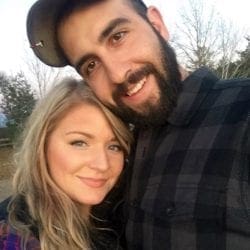Be as patient as you can, even though there are days you will feel like you’re going to explode. So be sure you know how to ask for help when you need it.
Do you have any hobbies, particularly any that may relate to your caregiving?
My husband and I enjoy traveling to new places as a stress relief and change from our daily, very scheduled and structured, lives. We like to visit at least one new country or state every year.
At what moment did you realize you were a military caregiver?
In May 2017, we were hanging out with a few other couples who are also veterans. Mick’s friend asked me why I was not yet his caregiver through the VA. I had never thought of it before. Mick had been out of the Army two years; however, I had never once thought that taking care of daily meals, helping him out of bed, and bathing were really anything more than just what we did to keep life moving. It opened a lot of doors for me and showed me that I am his caregiver. It was quite an epiphany for me.
What are the most significant lessons you have learned from being a caregiver?
No human is equipped to naturally deal with physical or mental trauma. Likewise, no two people handle it the same. Listen and be patient with the person you care for, they are telling you what they need help with, even if they aren’t directly verbalizing it. They may not always ask for help.

My Story
Elissa's husband Mick was driving a mobile assault vehicle in Afghanistan when he ran over an improvised explosive device (IED). He sustained a back injury, as well as a traumatic brain injury (TBI). He came home and remained in the Army until he was medically retired in 2014. During his process of transitioning from the Army, he was diagnosed with a TBI, knee injuries, degenerative disc disease, post traumatic stress disorder (PTSD), and more. Elissa has been his caregiver since he transitioned, and she is learning through trial and error.
Elissa is optimistic that during her time as a Dole Caregiver Fellow, who will help raise awareness of families like her's. She hopes to learn more about how to be a better caregiver for her husband. She is in her late 20s and hopes to help other young caregivers be prepared for anything, and have the resources they need.








